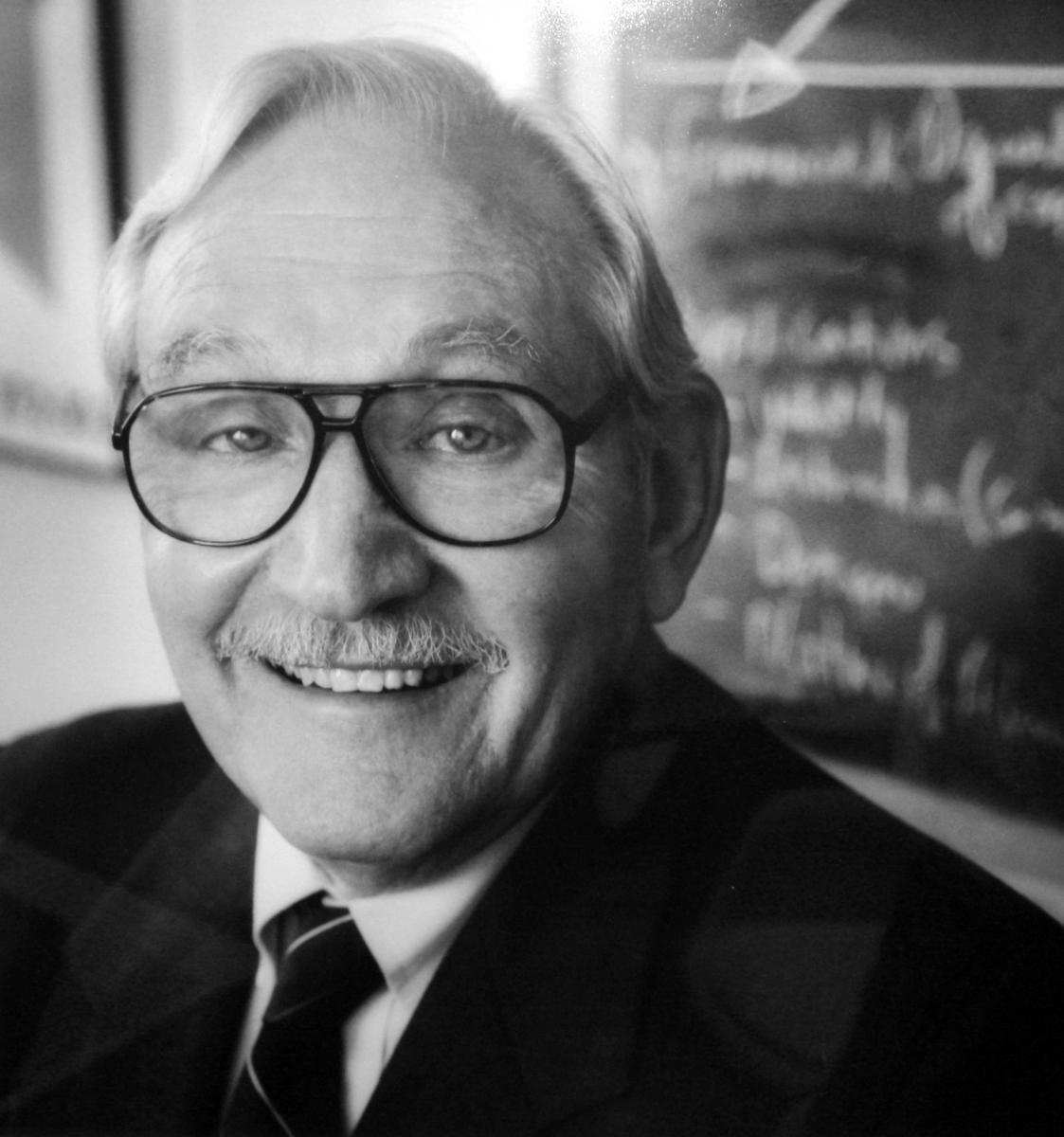Robert Glaser, a Key Founder of the Cognitive Science of Instruction And Pitt University Professor Emeritus of Psychology, Dies
PITTSBURGH—Robert Glaser—founding director emeritus of the University of Pittsburgh Learning Research and Development Center (LRDC) and University Professor Emeritus of Psychology at Pitt—died on Feb. 4 following a long battle with Alzheimer’s disease. He was 91.
Glaser, a leading scholar in the psychology of learning, cognition, and instruction, was one of the first to champion the role of assessment in the service of learning. He built upon the psychology of human cognition to integrate instruction and testing. He won international recognition in the field of measurement when he initiated the criterion-referenced testing movement—tests that were not references to rank orders of individuals but rather to performance levels that describe what students know and can do.
A native of Rhode Island and raised in the Bronx, Glaser arrived at Pitt in 1956 as an associate professor of psychology and taught as a full professor in the Departments of Psychology and Education through most of his career. In 1963, he (with the late J. Steele Gow, then the executive director of the Maurice and Laura Falk Foundation) cofounded LRDC, one of the very first centers in the world to investigate learning, instruction, and schooling for the improvement of educational practice. Glaser served as the LRDC’s director until 1997.
Glaser was a key founder of the cognitive science of instruction. When he launched LRDC, he was motivated by the opportunities to improve education by using computer technology to leverage applied behavioral engineering techniques. As the potential of cognitive psychology started to become apparent, he quickly realized first that its techniques could contribute to that engineering effort and not long thereafter that cognitive science, with its focus on understanding both the structure of human knowledge and the ways in which people acquire knowledge, had enormous potential for the improvement of learning and teaching. The key journals on cognition and instruction were either established at Pitt with Glaser's participation or based upon those with which he was involved.
“In founding LRDC, Bob Glaser instantiated—in a single university setting—his concept of a new multidisciplinary science of instruction,” said Charles Perfetti, director of LRDC. “Bob was both an iconic figure and a down-to-earth friend to many, many people at all stages of their careers. He was terrifically supportive of graduate students, postdocs, and junior faculty and had a nurturing influence that stretched around the globe.”
“Bob energized the entire Learning Research and Development Center,” added Alan Lesgold, dean of Pitt’s School of Education. “When he asked you in passing ‘What did you discover today?’ he meant it and was eager to think about your answer. So, of course, people did a lot of discovering, and he did a lot of supportive critiquing. Dozens of students, even many advised by other faculty, attribute their success to the standards and support Bob provided.”
Glaser was the author or editor of more than 20 books and 220 articles during his career, which spanned five decades. He served as president of the American Educational Research Association (AERA) and the National Academy of Education. In that role, he initiated exchange visits with psychological and educational researchers in Moscow and Tbilisi.
Glaser received numerous awards, including a Guggenheim Fellowship; the AERA Award for Distinguished Research and its E.F. Linquist Award; the American Psychological Association’s (APA) E. L. Thorndike Award for Distinguished Psychological Contributions to Education; its Distinguished Scientific award for the Applications of Psychology, and its Distinguished Lifetime Contribution to Evaluation, Measurement, and Statistics; the APA’s James McKeen Cattell Fellow Award; the Pitt Chancellor’s Distinguished Research Award; the National Society for Performance and Instruction’s Distinguished Professional Achievement Award; and the University of California at Los Angeles center for the Study of Evaluation’s Distinguished Achievement Award.
Glaser was a member of the Royal Norwegian Society of Sciences and Letters. He received his PhD in psychological measurement and learning theory from Indiana University, where he studied under celebrated psychologist B.F. Skinner. Glaser held honorary doctoral degrees from the University of Gothenburg (Sweden), Indiana University, University of Leuven (Belgium), McGill University (Canada), and the University of Victoria, British Columbia (Canada).
Glaser was preceded in death in 2001 by his wife, Sylvia Lotman Glaser, and is survived by a sister, Irma Kemp of Queens; daughters Ellen DeBenedetti of Pittsburgh and Karen Glaser of Chicago; two grandchildren; and one great-grandson.
Details regarding a memorial service will be announced by LRDC. In lieu of flowers, the family asks that donations be made to the Alzheimer’s Association at 1-800-272-3900 or www.alz.org or to Pitt’s LRDC. Call Patsy Guzzi Jr. at 412-624-7030 for more information.
###
2/6/12/mab
Topics
University Units
Media Resources
Schools of the Health Sciences Media Relations
For more information about Pitt's schools of dental medicine, health and rehabilitation sciences, medicine, nursing, pharmacy, and public health, click here >
To locate stories from health science schools prior to 2013, visit the UPMC news archives »
Urgent Question?
University of Pittsburgh news reps are available to answer urgent media inquiries. Outside of regular business hours (Mon-Fri, 8:30 a.m.-5 p.m.), please email us at media@pitt.edu.
News reps for University of Pittsburgh Health Sciences schools can be reached outside of regular business hours through the paging operator at 1+412-647-2345.


